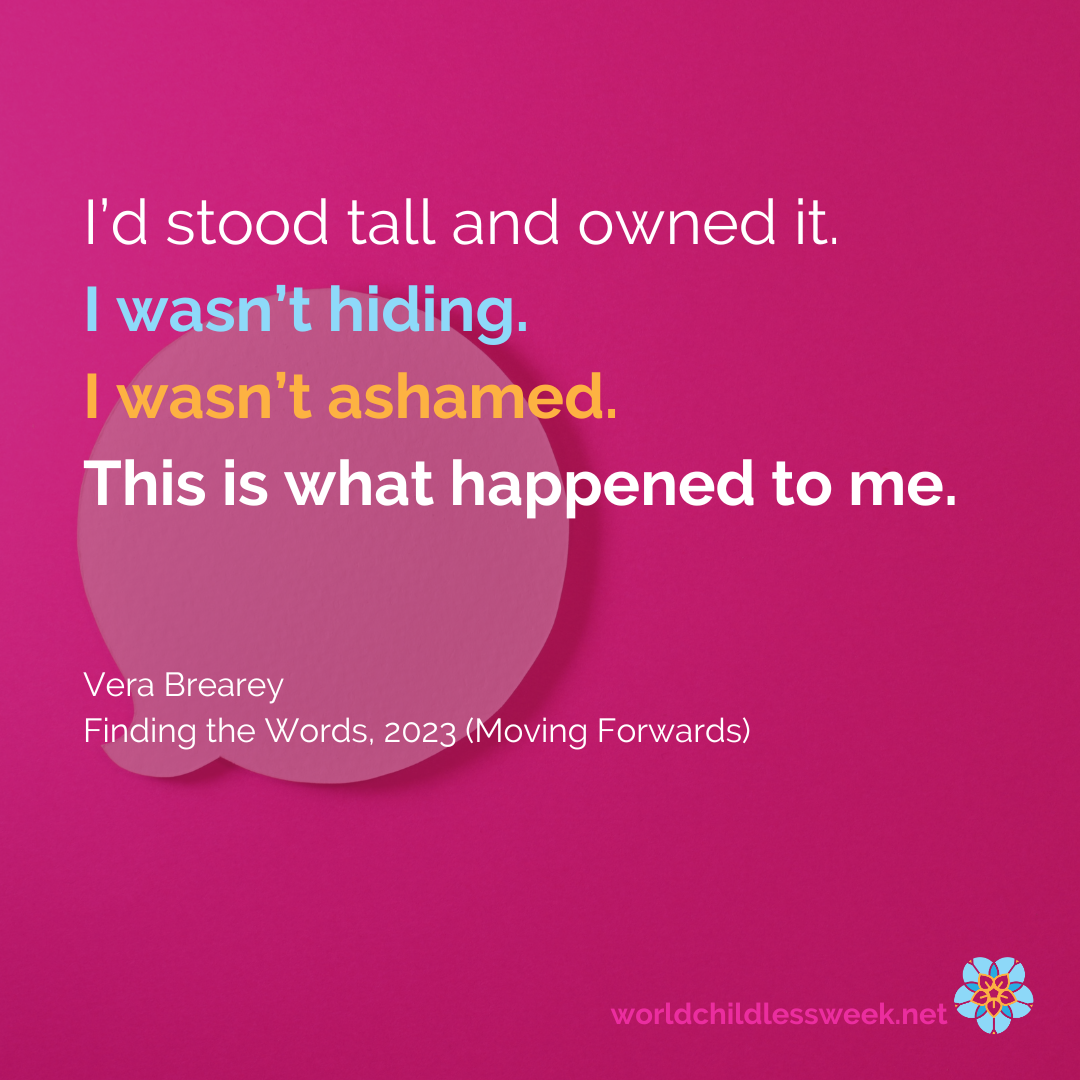Vera Brearey
I started to move on when I stopped crying.
I had cried for years. It went on and on. I’d not read any books on the need to grieve. This was the 1980s and I’m not sure such books existed. I just cried.
Then, and I can remember this happening, I got fed up with crying. I wanted to be happy again. I wanted to live, and if that meant living a different life to the one I’d expected, then so be it. Today I might say I was deciding to go for my plan B. But back then I had none of that language. I just decided okay, I need to stop doing this. In many ways that was much easier than it might have been. My lovely husband and I had faced it all together and had agreed on all the big decisions (IVF? no, adopting? no). I had a job I loved and was already moving up the career ladder, so I kept going. No drama. I was lucky in so many ways. But some things were hard.
One of the most difficult things for me was finding the language to describe what had happened. It took me years to work that one out. I mainly remember silence. Close friends and family who knew what had happened (not happened?) said nothing, so conversations never started. Looking back, it seems very odd indeed. Very British, but very odd.
But, in a way, that silence was easier to cope with than the conversations when people didn’t know what had happened.
‘Do you have any family, Vera?’ some colleague at work would say, reasonably enough – it being a popular conversational gambit for most of the population. It took me years, perhaps decades, to find the right language to reply. ‘No, but I have two cats’ raised a laugh but left awkward questions unanswered. People would look at me oddly (or I thought they did). The conversation would fizzle out. I would feel deeply uncomfortable.
Eventually, I found words that worked for me. ‘No, sadly. My husband and I wanted children very much, but it didn’t happen, so life moved on in a different direction. It’s fine now but it was hard once.’ That worked. It was factual. Some people asked more questions, which was great. Some people didn’t, which was also fine. But at least they knew, and at least I’d stood tall and owned it. I wasn’t hiding. I wasn’t ashamed. This is what happened to me.
And then I learnt to smile and say, ‘how about you?’, to signal that I was very happy to hear about any children they had. I’d never found it hard to talk about children, or be with children, but sometimes people assumed that I might, and clammed up, which I hated. It only seemed to emphasise the loss.
Perhaps moving forward would have been easier if I’d found the right words (the right words for me, anyway) sooner. Or perhaps finding those words was another chapter of moving on.
Photo by Miguel Á. Padriñán on Pexels

